PROFESSIONAL INTERNATIONAL PIGMENT SUPPLY CHAIN PLATFORM
-
Phone: +86 21 38122699
Pigment Product Category
Our Service
Fast Response
Promptly address customer inquiries and requirements, providing timely feedback and solutions.
Shorton Lead Time
Ensure efficient production and supply chain management for speedy product delivery, reducing waiting time.
ODM/OEM
Cater to unique product requirements through expert design and manufacturing capabilities.
Share Our Product
Contact Us
Any questions? Send us a message now! We’ll serve your request with a whole team after receiving your message.

WPA is a leading supplier of high-quality pigments, catering to a wide range of industries and applications. With a strong commitment to excellence, we have established ourselves as a trusted partner in the pigment industry. Our extensive product portfolio, technical expertise, and focus on customer satisfaction set us apart from the competition.
WPA has been serving the pigment industry for over 15 years. Our founders, driven by a passion for color innovation, set out to provide the highest quality pigments to meet the diverse needs of our customers. Today, we continue to build upon that legacy, constantly striving to exceed industry standards.
WPA product
Showing 145–160 of 202 results
-
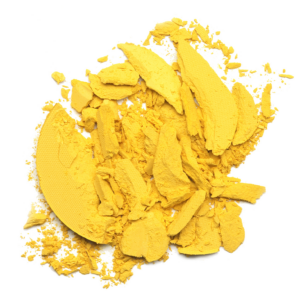
Pigment Yellow 34 (Tint Chrome Yellow Y2020)/P.Y.34 CAS No.1344-37-2
-
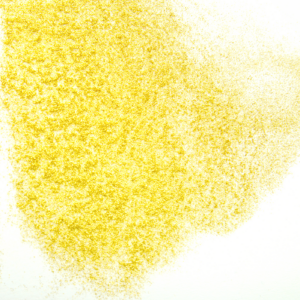
Pigment Yellow 34 (Tint Chrome Yellow Y2021)/P.Y.34 CAS No.1344-37-2
-

Pigment Yellow 34 (Tint Chrome Yellow Y2121)/P.Y.34 CAS No.1344-37-2
-

Pigment Yellow 34 (Tint Chrome Yellow Y2220)/P.Y.34 CAS No.1344-37-2
-
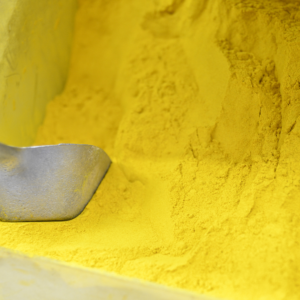
Pigment Yellow 34 (Tint Chrome Yellow Y2221)/P.Y.34 CAS No.1344-37-2
-

Pigment Yellow 42 (Iron Oxide Yellow 313)/P.Y.42 CAS No.51274-00-1
-
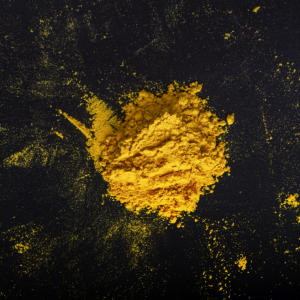
Pigment Yellow 42 (Iron Oxide Yellow 920)/P.Y.42 CAS No.51274-00-1
-

Pigment Yellow 42 (Iron Oxide Yellow Y-703)/P.Y.42 CAS No.51274-00-1
-

Pigment Yellow 42 (Iron Oxide Yellow Y-803)/P.Y.42 CAS No.51274-00-1
-

Pigment Yellow 42 (Iron Oxide Yellow Y-903)/P.Y.42 CAS No.51274-00-1
-
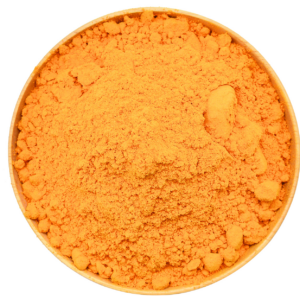
Pigment Yellow 42&Pigment Orange 101 (Iron Oxide Orange 960)/P.Y.42&P.R.101 CAS No.51274-00-1
-
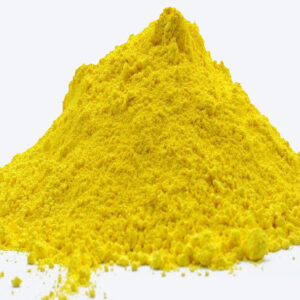
Pigment Yellow 53
-

Pigment Yellow 53 (Nickel Antimony Titanium Yellow 5300)/P.Y.53 CAS No.8007-18-9
-

Pigment Yellow 62 (Pigment Yellow SRP)/P.Y.62 CAS No.6528-34-3
-
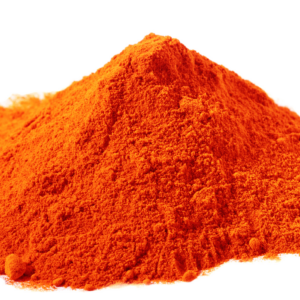
Pigment Yellow 65 (Permanent Yellow RN)/P.Y.65 CAS No.6528-34-3
-

Pigment Yellow 74 (Permanent Yellow 5GX-OP)/P.Y.74 CAS No.6358-31-2
Pigments Manufacturing Process
Raw Material Selection
The first step in pigment production is to choose the appropriate raw materials. Pigments can be derived from various sources, including minerals, metals, and organic compounds. The selection depends on the desired color, properties, and application of the pigment.
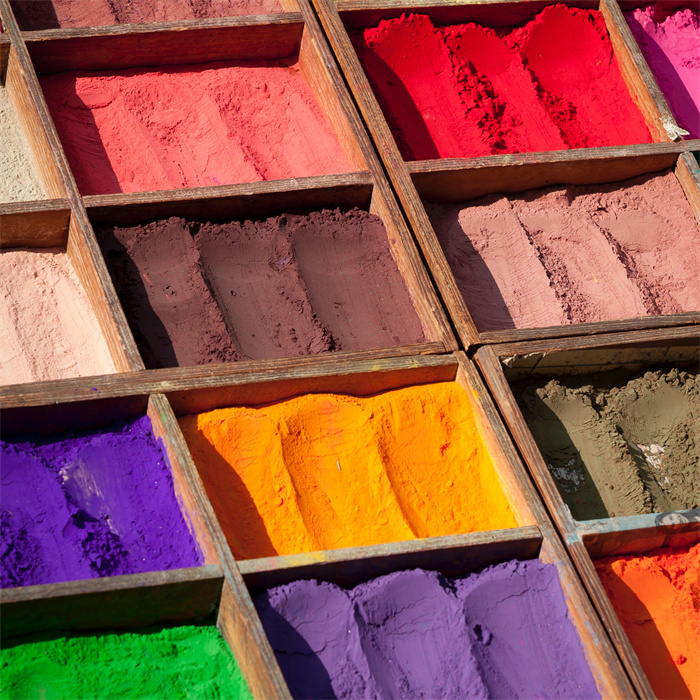
Pre-Treatment
The selected raw materials often need to undergo pre-treatment processes, such as grinding or pulverizing, to reduce their particle size and ensure uniformity. This step promotes better dispersion and enhances the pigment’s performance.
Mixing
After pre-treatment, the raw materials are carefully mixed in predetermined ratios to achieve the desired color formulation. This step involves weighing and blending different pigments and additives to create a homogeneous mixture.
Wet Grinding
Wet grinding involves dispersing the pigment mixture in a liquid medium, such as water or a solvent, and processing it using specialized milling equipment. This process helps break down pigment agglomerates, further reduce particle size, and improve the color strength and stability.
Drying
Once the wet grinding process is complete, the resulting mixture is typically in the form of a wet cake. To remove the liquid component, the pigment is dried using techniques like evaporation, air drying, or heating. The drying process ensures that the pigment is in a dry powder form, ready for further processing or packaging.
Milling and Classification
The dried pigment powder may still contain agglomerates or particles outside the desired size range. To achieve the desired particle size distribution and eliminate any impurities, the pigment undergoes milling and classification. Milling methods further reduce particle size and break down agglomerates. Classification techniques help separate particles according to their size.
Why choose us to be
your pigments supplier
Elevate your pigment quality
At WPA pigment chemical manufacturing factory, we pride ourselves on being a trusted and reliable supplier in the industry. With 15+ years of experience and expertise, we offer unparalleled quality and innovation in pigment production.

Customization Capabilities
With our in-depth knowledge and expertise, we offer customization services to tailor our pigment formulations to meet your specific requirements.
Innovative Processes
Our pigment production incorporates cutting-edge wet grinding processes, utilizing state-of-the-art milling equipment and liquid mediums.
Superior Quality
We prioritize quality at every step of the pigment manufacturing process. Only the highest-grade ingredients are used in our pigment formulations.
Pigments Applications
WPA pigments have a wide range of applications across various industries.
Coatings
Pigments are widely used in the formulation of paints, varnishes, and coatings.
Plastics
Pigments are used in the coloring of plastics, including thermoplastics and thermosetting resins.
Inks
Pigments are key ingredients in the production of printing inks for various applications, including newspapers, magazines, packaging, and textiles.
Cosmetics
Pigments are widely used in the cosmetics industry for the production of makeup products, such as lipsticks, eyeshadows, foundations, and nail polish.
Textiles
Pigments are used in textile dyeing and printing processes. They offer a wide range of colors and effects.
Plasters and Concrete
Pigments are utilized in the coloring of plasters and concrete to achieve decorative and aesthetic effects in architectural applications.
Inks for Writing Instruments
Pigments are used in the production of inks for writing instruments like pens, markers, and fountain pens.
Ceramics
Pigments are extensively used in ceramic glazes and ceramic decorations.
Automotive
Pigments are essential in the automotive industry for coloring automotive paints, coatings, and finishes.
Artist Materials
Pigments are used by artists in various forms, including paints, pastels, pencils, and inks, to create artwork.
FAQs
We offer a wide range of pigments including organic pigments, inorganic pigments, fluorescent pigments, and specialty pigments.
Our pigments are designed to cater to various industries such as coatings, plastics, inks, cosmetics, and textiles. Please provide details of your specific application, and we can guide you on the suitability of our pigments.
We pride ourselves on providing high-quality pigments. Our pigments undergo rigorous quality control processes to ensure color consistency, stability, and adherence to industry specifications.
Yes, we offer samples so that you can evaluate the quality and suitability of our pigments for your application. Please contact our sales team to request samples.
Our production capacity depends on the specific pigment and order quantity. We can provide you with an estimated lead time based on your order requirements.
Yes, we offer customization options for certain pigments. This may include variations in shade, particle size, or chemical composition. Please contact our sales team to discuss your customization needs.
Our pricing structure may vary depending on the pigment type, quantity ordered, and customization requirements. Please contact our sales team for a detailed quotation.
Our minimum order quantities vary depending on the pigment type and packaging options. Please contact our sales team for specific information regarding your desired pigment.
Yes, we have established a reliable and efficient supply chain to ensure timely delivery of our pigments. We work with trusted logistics partners to deliver orders securely.
Absolutely! Our team of experts can provide technical support and guidance on pigment selection, usage, and compatibility with different systems. Feel free to reach out to our technical support team with your questions.
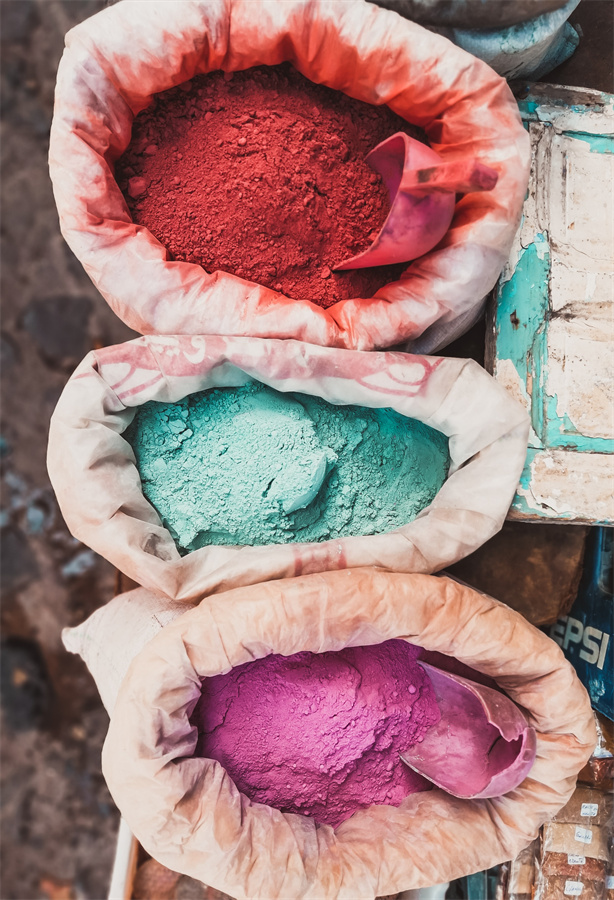
Get Free Chemical Solutions !
- Info@wpachem.com
- +86 21 38122699
- +86 21 38122699
- Room 910, Block A, Wolicity, No. 2419, Hunan Road, Pudong, Shanghai. PC.201204
Top Category
Powdered by Easyceotech





